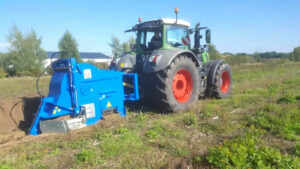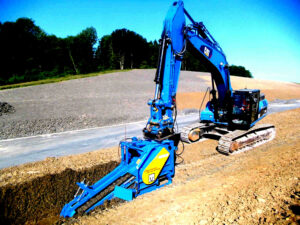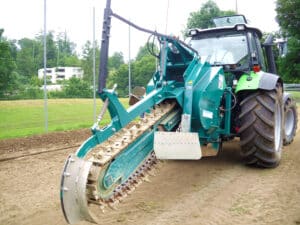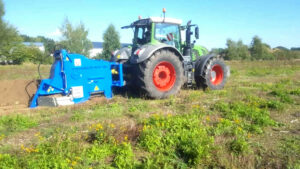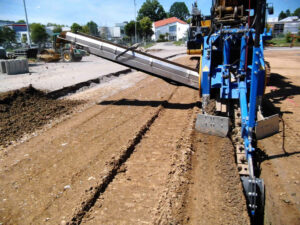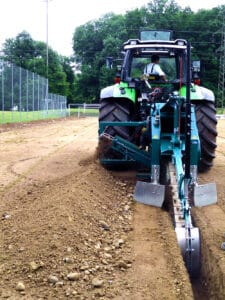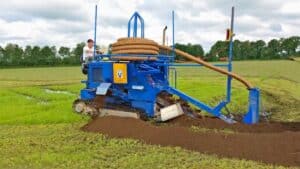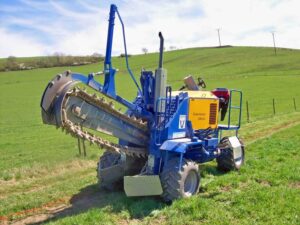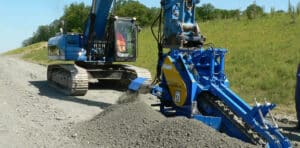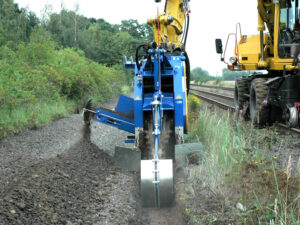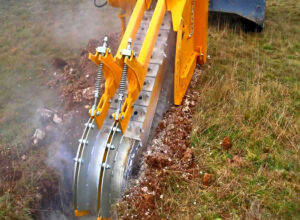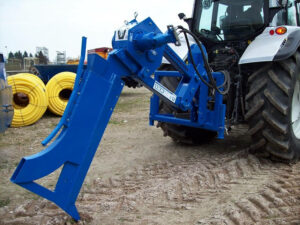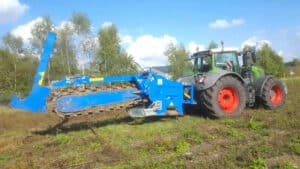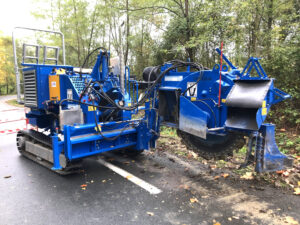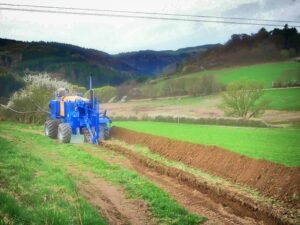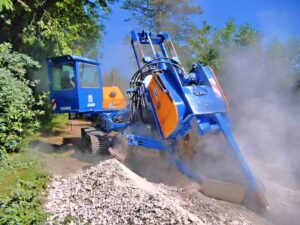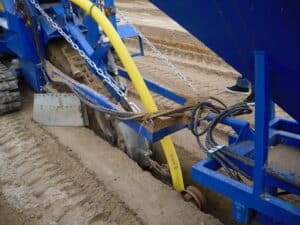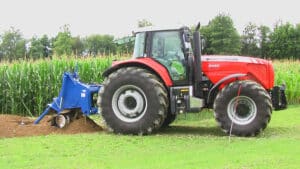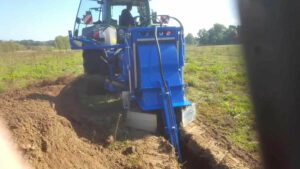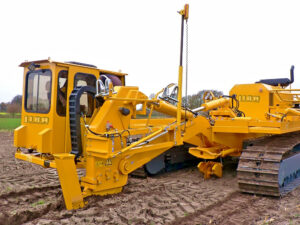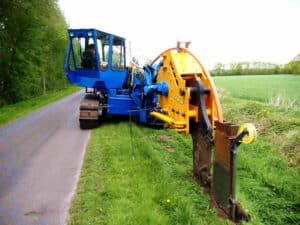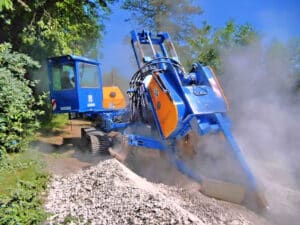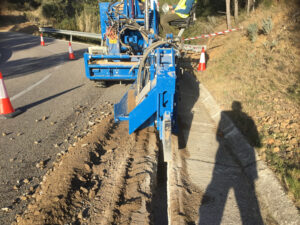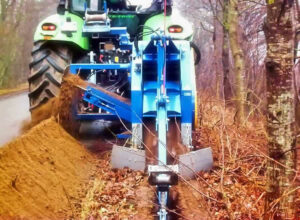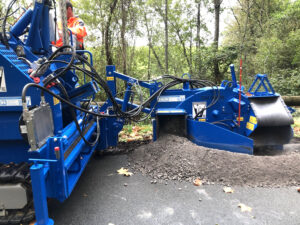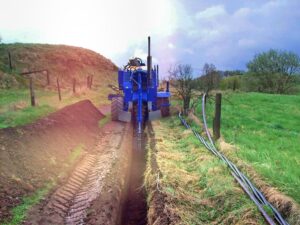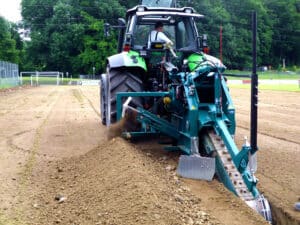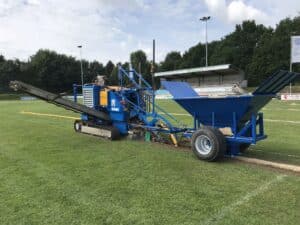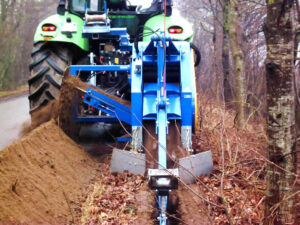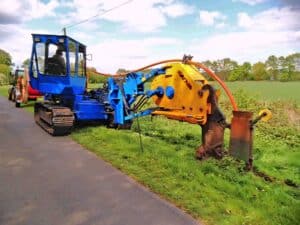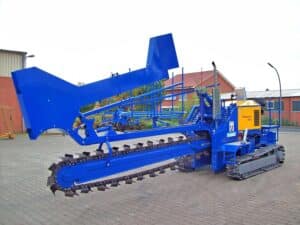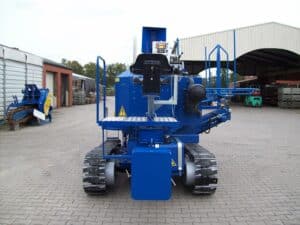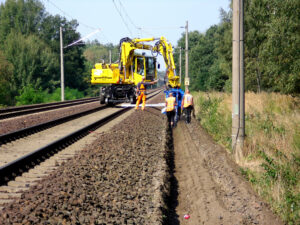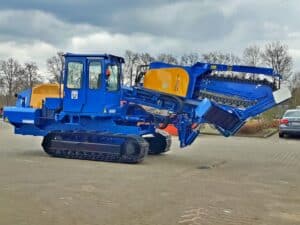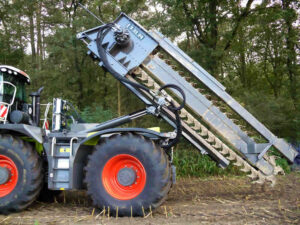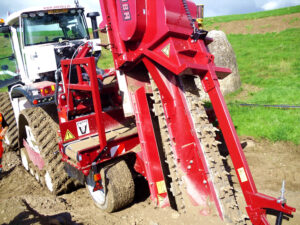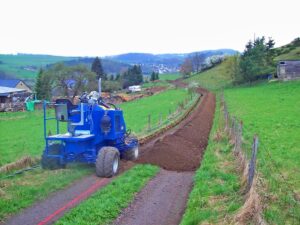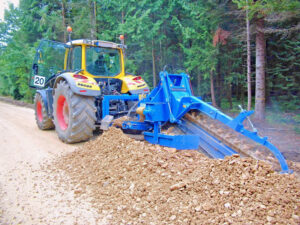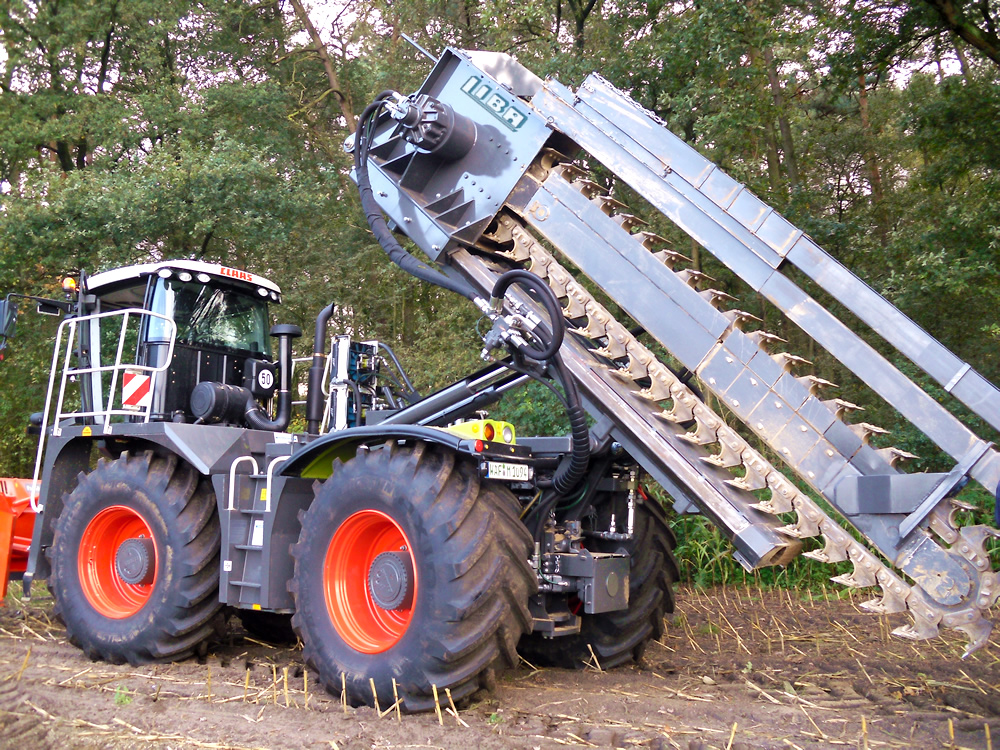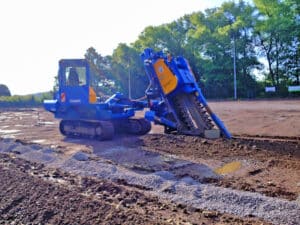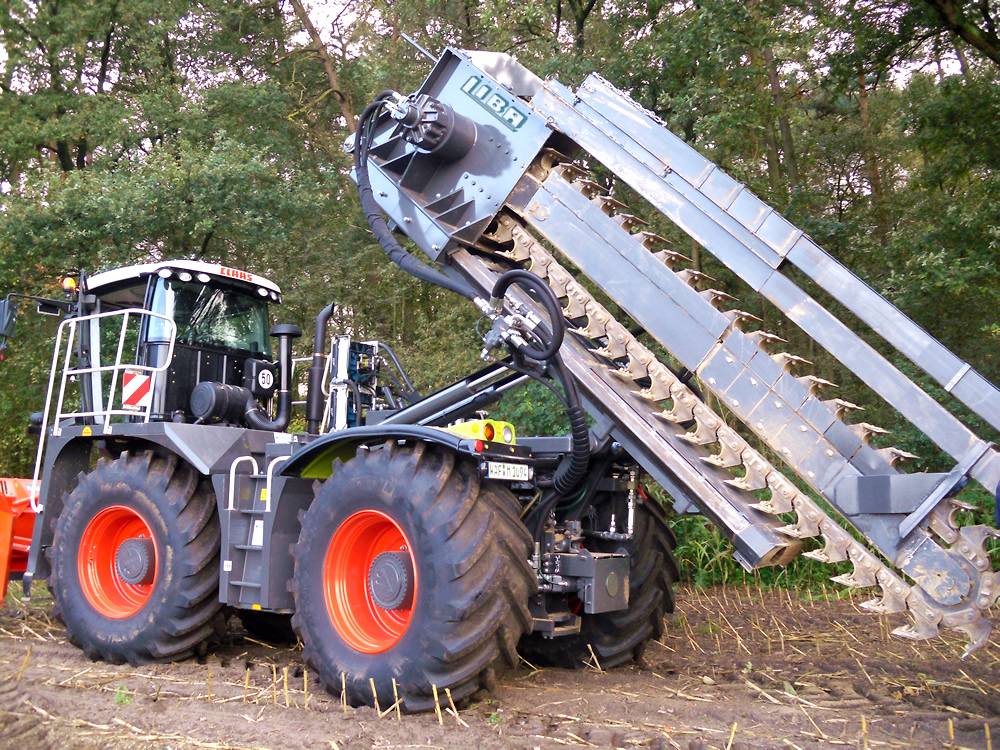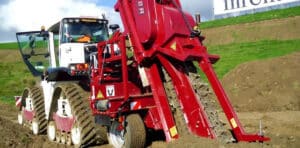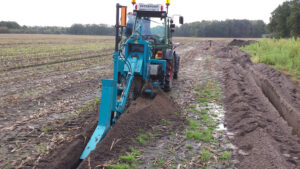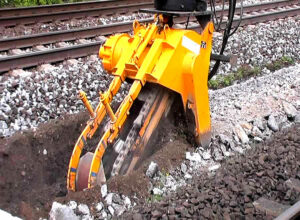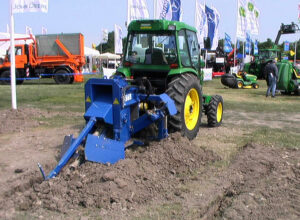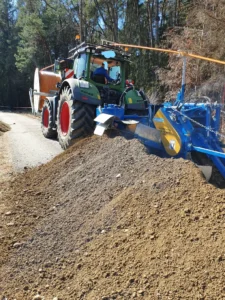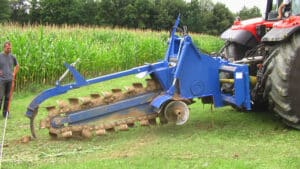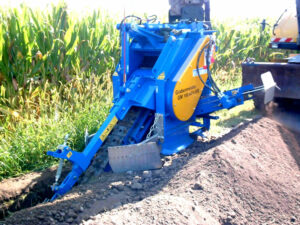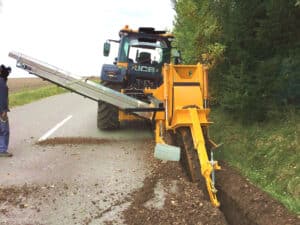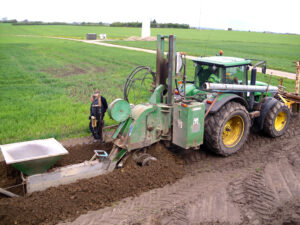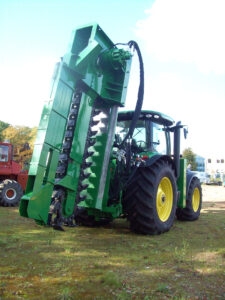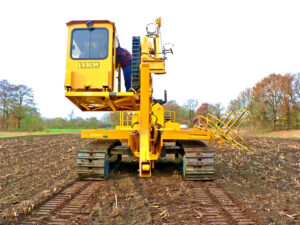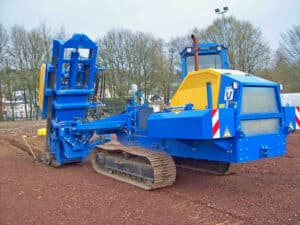Trenchers are widely used in agriculture, horticulture and landscaping to dig trenches or holes in the ground. Here are some applications of trenchers:
- Irrigation systems: trenchers are used to dig trenches in which pipes for irrigation systems can be laid.
- Drainage and drainage systems: Trenchers can be used to dig trenches for drainage pipes or drainage systems.
- Cable and pipe laying: Trenchers are commonly used to dig trenches for cables or pipes that carry electricity, gas or other utilities.
- Plants and trees: trenchers can be used to dig trenches for plants and trees to give them enough space to grow and thrive.
- Pond and pool construction: trenchers can be used to dig trenches for ponds or swimming pools.
- Landscaping: trenchers can also be used to cut shapes into the ground to achieve a specific landscape design.
- Laying pipes and cables under roads: Trenchers can also be used to lay pipes and cables under roads without having to tear up the road surface.
- Road construction: Trenchers can also be used to dig trenches for road construction work, such as laying underground pipes or laying street lighting cables.
Overall, there are many applications for trenchers that can help with construction work, landscaping, and utility and cable installation
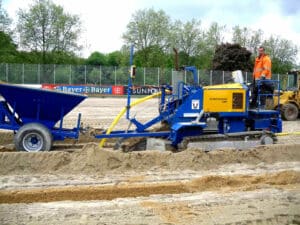
Irrigation systems with trenchers
Irrigation systems with trenchers A trencher is a tool used to cut trenches in the ground to lay pipes, cables or irrigation systems. When installing an irrigation system, a trencher
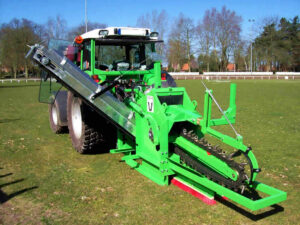
Landscaping with trenchers
In landscaping, a trencher can be used in a number of ways. Here are some ways a trencher can be used in landscaping: Creation of irrigation trenches: A trencher can
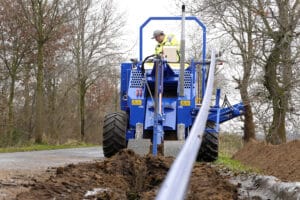
Making drainage ditches with trenchers
To use a trencher for drainage ditches, you must first determine the location where you want to dig the drainage ditch. Keep in mind that drainage ditches usually run along
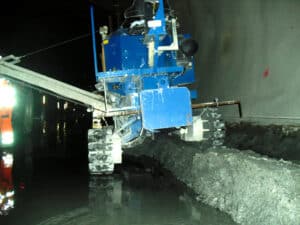
Mining trenching
In mining, a trencher can be used to create trenches of various sizes and shapes for different purposes. Here are some ways trenchers can be used in mining: Drainage: A
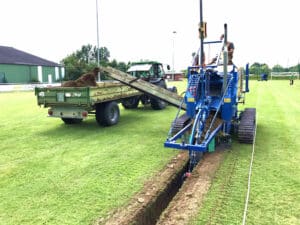
Sports field construction with trenchers
In sports field construction, trenchers are the optimal option, especially when preparing the subsoil. Here are some ways you can use a trencher: Trenching: a trencher can be used to
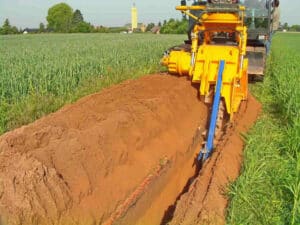
Tillage with trenchers
How does tillage with the trencher work? Trenching is a process of loosening and breaking up the soil in a specific area to aerate plant roots and improve nutrient uptake.
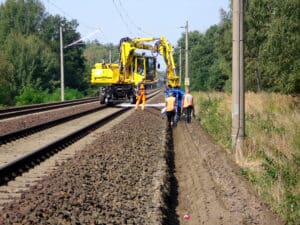
Track construction with trenchers
A trencher can be used in track construction to cut trenches along the rails where cables, pipes or drainage systems can be laid. Here are some steps you should follow
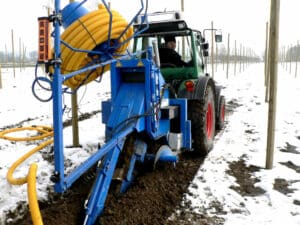
Trencher in agriculture
Agriculture has been one of our biggest fields of application for ages. Already many farmers work with our machines and can thus do their work optimally. The possibilities of use
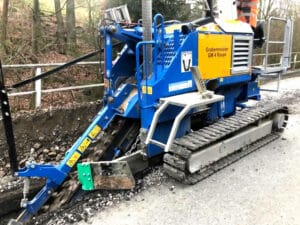
Trenching during the construction of telecommunications
A trencher is also beneficial in the field of telecommunications, offering a number of advantages, such as: Fast trenching: A trencher can excavate large amounts of soil in a short
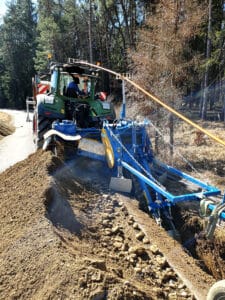
Trenching for cable and line laying
Trenchers for cable and wire laying can be used to cut trenches for laying cables. Here are some steps you can follow to use a trencher in cable construction: Plan
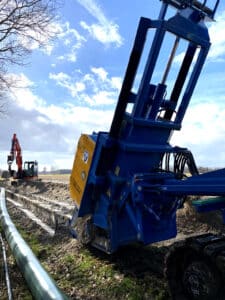
Trenching for gas and water pipes
Gas and water pipelines are the cornerstone of a functioning infrastructure. The supply of vital substances, such as water and gas, are of great importance and should therefore be reasonably
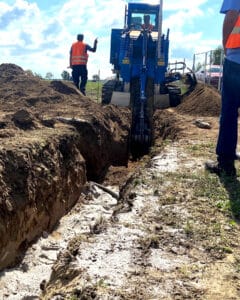
Trenching for power lines, solar farms and wind farms
Power lines for solar farms and wind farms are key suppliers of clean electricity as renewable energy expands. Especially in a time when the protection of the environment is more
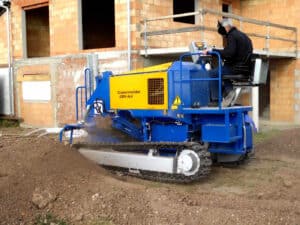
Trenching in construction
In construction, a trencher can be used in several ways. This is due to the versatility of the milling machine. Especially in the construction industry, a lot of work can
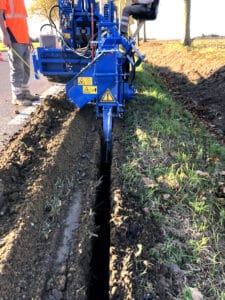
Trenching in urban planning
In the field of urban planning, a trencher can be used in several ways. Similar to construction, the versatility here is very high. Here are some ways a trencher can
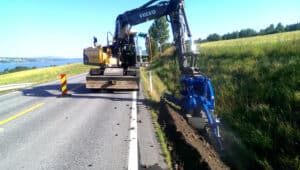
Use of trenchers in road construction
A trencher is a very useful tool in road construction that can be used to dig trenches for various purposes. Here are some things you can do with a trencher
Trenchers make the job easier for several reasons:
-
Efficiency: A trencher can quickly and accurately dig a trench, which greatly speeds up the work compared to manual excavation. This means that projects can be completed faster and you have more time for other tasks.
-
Accuracy: A trencher can be set to a specific depth and width, which enables accurate excavation. This is especially important if you want to lay a pipe or cable, for example, as accurate alignment is required to ensure proper functioning.
-
Less labor: A trencher typically requires only one operator, which can result in significant savings in labor costs. In comparison, manual excavation typically requires multiple workers to complete the same amount of work.
-
Less physical exertion: Manual excavations usually require a lot of physical effort, which can lead to fatigue and injury. A trencher can reduce this stress and protect the operator from injury.


